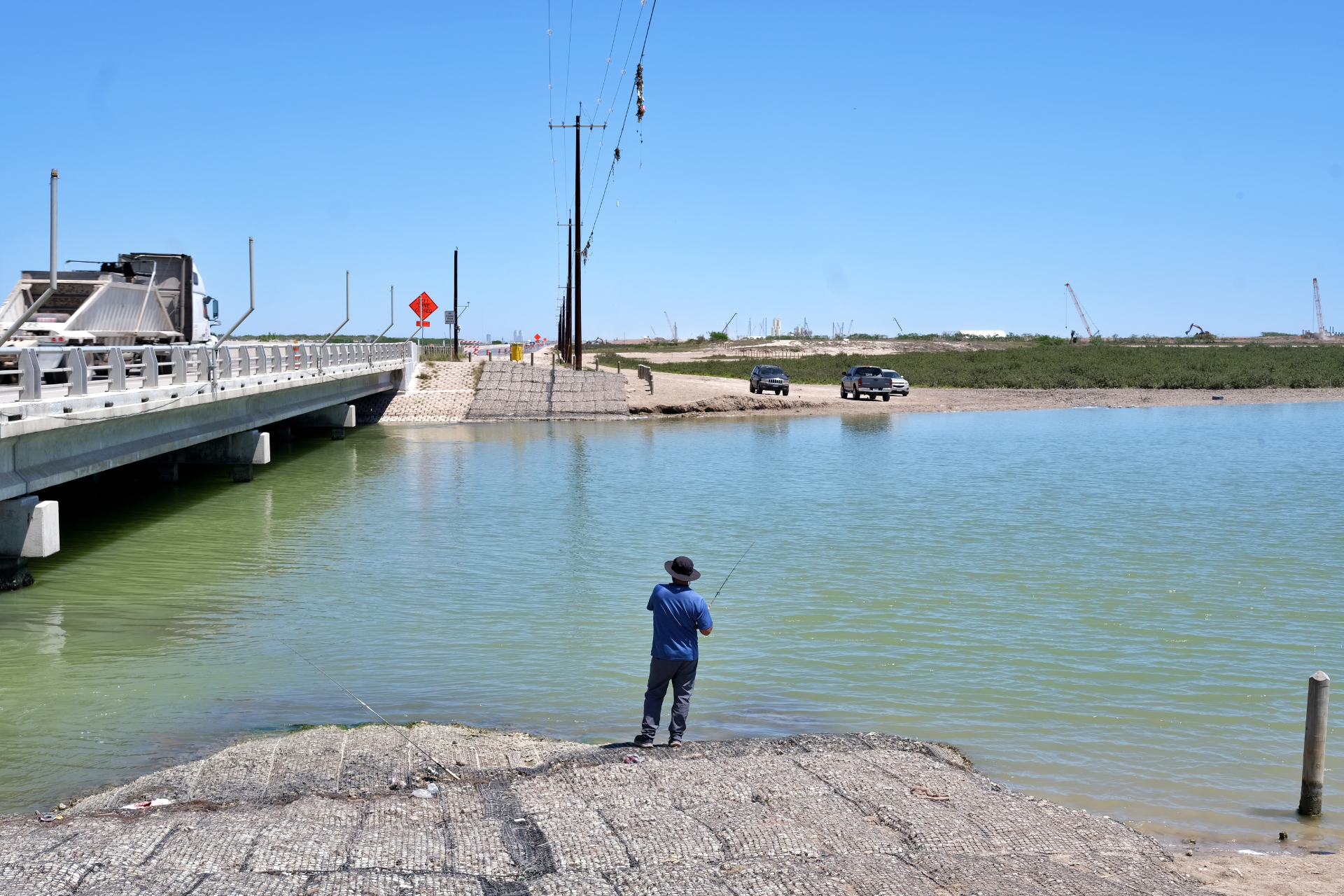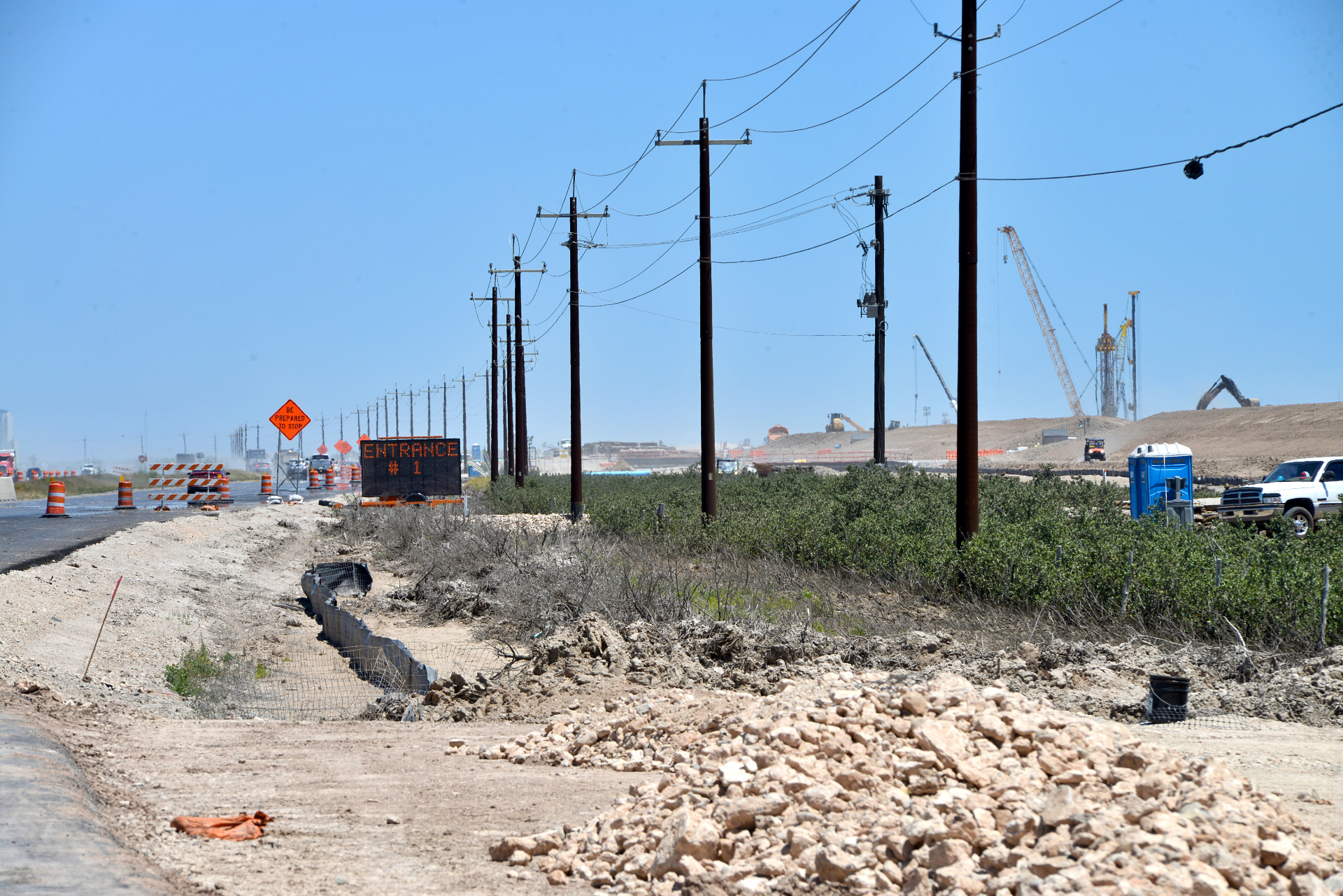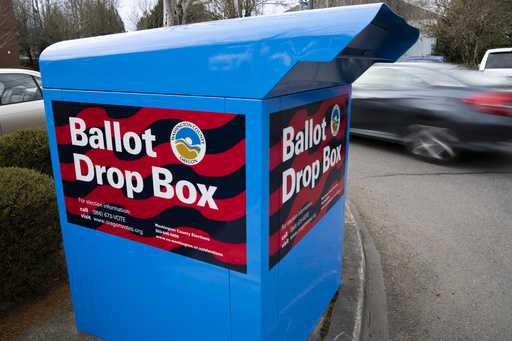A decision by the D.C. Circuit Court vacating Federal Energy Regulatory Commission approval of liquefied natural gas export terminal and related pipeline projects at the Port of Brownsville does not put a stop to LNG construction already underway at the port.
Work at the nearly 1,000-acre Rio Grande LNG along S.H. 4 north of the Brownsville Ship Channel has been underway for over a year. The D.C. court on Aug. 6 vacated FERC approval of Rio Grande and the related Rio Bravo Pipeline Project, as well as the proposed, smaller Texas LNG project, on the grounds that FERC approved the projects “despite widespread concerns for the harm the projects would cause to the surrounding communities and the climate,” according to the Sierra Club, one of the anti-LNG petitioners in the lawsuit against FERC.
The Sierra Club’s lead attorney on the case, Nathan Matthews, later issued a statement saying that construction of Rio Grande LNG, owned by Houston-based NextDecade, won’t have to cease until the court issues a mandate making its decision effective.
“Because part of the order vacates FERC’s authorization, the mandate will implement the order and officially revoke NextDecade’s permission to construct,” he wrote. “The Court has said it will not issue the mandate for 52 days, which is seven days after the 45-day deadline for FERC or the developers to seek rehearing.”
Matthews argued that “FERC doesn’t need to wait for a court mandate.”
“In 2018, when the Fourth Circuit found that the U.S. Forest Service had improperly approved the Mountain Valley Pipeline, FERC issued a stop work order the following week, without waiting for the court to issue a mandate,” he said. “FERC should do the same here.”
As a result of the D.C. court upholding the petitioners’ arguments and vacating FERC approval, the agency must now reconsider the impacts of the three projects, which will entail a new draft supplemental Environmental Impact Statements and public comment period before. FERC could still issue project permits following that process.
Cameron County Judge Eddie Treviño Jr., in a statement, voiced support for Rio Grande LNG, and said “it appears that the issues being addressed are more procedural rather than substantive concerns.”
“Cameron County remains committed to the project and the significant economic benefits it will bring to the Cameron County and the Rio Grande Valley,” he said.
 A man fishes along Texas State Highway 4 on Thursday, April 4, 2024, as NextDecade Liquid Natural Gas development company continues construction at their Rio Grande LNG export facility in Brownsville. (Miguel Roberts/The Brownsville Herald)
A man fishes along Texas State Highway 4 on Thursday, April 4, 2024, as NextDecade Liquid Natural Gas development company continues construction at their Rio Grande LNG export facility in Brownsville. (Miguel Roberts/The Brownsville Herald)Treviño said the county was still reviewing the case and “any potential local impact,” though a stop-work mandate isn’t expected until the appeals process has run its course.
“Although we feel the action of vacating an existing permit for an infrastructure project under construction is unprecedented, Cameron County maintains respect for the D.C. Circuit Court of Appeals and the legal process,” he said.
NextDecade provided a statement to the Brownsville Herald for this story saying that the company believes the D.C. court should not have vacated the FERC order on the $18 billion-plus Rio Grande LNG project over “alleged procedural foot faults by (FERC).”
“The recent D.C. Circuit Court decision to vacate the FERC’s remand authorization of the Rio Grande LNG facility is disappointing, and we do not agree with the Court’s conclusions,” the statement read.
NextDecade said it is “committed to taking any and all necessary legal and regulatory actions to ensure that Phase 1 will be delivered on time and on budget and that positive final investment decisions on Trains 4 and 5 will not be unduly delayed.”
“Trains” refer to the plant’s individual, complete units for the liquefaction of natural gas. When fully built out, Rio Grande LNG would have five of them, with a total production capacity of 27 million metric tons of LNG annually.
“If this ruling is upheld, thousands of Rio Grande Valley residents will lose much-needed high-paying jobs, the Brazos Island Harbor (ship channel dredging) project would stop, and the ripple effect of billions of dollars being invested into the Rio Grande Valley community would be halted,” NextDecade said.
 NextDecade Liquid Natural Gas development company continues construction Thursday, April 4, 2024, along Texas State Highway 4 at their Rio Grande LNG export facility in Brownsville. (Miguel Roberts/The Brownsville Herald)
NextDecade Liquid Natural Gas development company continues construction Thursday, April 4, 2024, along Texas State Highway 4 at their Rio Grande LNG export facility in Brownsville. (Miguel Roberts/The Brownsville Herald)The company said the D.C. court decision has “far-reaching implications.”
“If this ruling stands, then the precedent set will impact the viability of all permitted infrastructure projects, because it will be difficult for developers to attract investment until these projects receive final unappealable permits,” NextDecade said.
Brownsville Mayor John Cowen said the city respectfully disagrees with the D.C court’s decision, noting that NextDecade had “conducted meaningful engagement with the public, including hosting 26 open houses with over 3,600 community members including over 1,600 students.”
“In order to grow a vibrant, environmentally sustainable and resilient Brownsville community, where 55% of the city is considered low- and moderate-income, the creation of jobs is fundamental in combating poverty and opening the path to home ownership and resiliency,” he said.
Of the more than 800 full-time jobs created by the Rio Grande LNG project to date, 58% are local, he said. Likewise, 60% of the nearly $3 billion in vendor expenditures has gone to local vendors, “providing additional indirect jobs and much needed growth in our local and regional economy,” Cowen said.
“Our nation is strong when a growing economically disadvantaged region such as the Rio Grande Valley can find common ground between an $18 billion investment by a producer of a lower-carbon-intensive (fuel) and the protection of our environment for the good of generations to come,” he said.
RELATED READING:
DC court vacates LNG approval at Port of Brownsville
The post LNG construction to continue at Port of Brownsville pending mandate appeared first on MyRGV.com.
 (2).png)
 3 months ago
72
3 months ago
72








 English (US)
English (US)